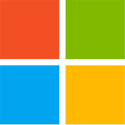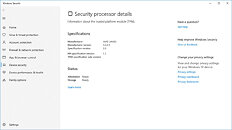Friday, June 25th 2021

Thanks to Windows 11, Scalpers Buy Out Add-on TPM 2.0 Modules
Most modern PC platforms include an fTPM (firmware trusted platform module) of some form. Those that don't, have a TPM 2.0 compatible header on the motherboards. Microsoft's requirement of a hardware TPM for Windows 11 has scalpers go after add-on TPMs, which are typically priced around $20, but now marked up to $100, according to price-tracking by Shen Ye, a senior HTC VIVE exec, who has been tracking prices of add-on TPMs on Twitter.
Scalpers possibly anticipate a rush of ill-informed buyers out for add-on TPMs, who haven't spent 5 minutes digging through their UEFI setup programs for the fTPM toggle. Below is a screenshot of a Ryzen 7 2700X-based machine, paired with an AMD B450 chipset motherboard (a platform from 2018), with its fTPM toggle turned on. The PC now meets Windows 11 system requirements. Windows 11 uses hardware TPMs for secure storage of credentials. "Microsoft, can you not impose a TPM requirement during a silicon shortage? Especially considering most desktop motherboards support TPM only as a purchasable accessory," Shen Ye tweeted.
Source:
Shen Ye (Twitter)
Scalpers possibly anticipate a rush of ill-informed buyers out for add-on TPMs, who haven't spent 5 minutes digging through their UEFI setup programs for the fTPM toggle. Below is a screenshot of a Ryzen 7 2700X-based machine, paired with an AMD B450 chipset motherboard (a platform from 2018), with its fTPM toggle turned on. The PC now meets Windows 11 system requirements. Windows 11 uses hardware TPMs for secure storage of credentials. "Microsoft, can you not impose a TPM requirement during a silicon shortage? Especially considering most desktop motherboards support TPM only as a purchasable accessory," Shen Ye tweeted.


263 Comments on Thanks to Windows 11, Scalpers Buy Out Add-on TPM 2.0 Modules
Oc'ing tends to lead to crashes anyone ever tell MS that lol it's for fun, reported driver has little to do with it but they whack a driver listed as the cause in a silly bsod report real issue is user created :p
AlsoOverclockers and a great deal of DIYers and tinkerers not included in that statement.
Yeah doesn't stop the driver police but you give the ms engineers way too much credit lol
Also require a new windows driver model for a CPU? Probably is more common for other devices or for example the WDDM of the GPUs recently updated to 2.7 on Win10 2004 and now 3.0 aanounced. In any case even for this, AMD's Ryzen APUs GPU are also perfectly supported with very recent drivers, so there will be no problems, as long as they don't try to create the problem themselves...
Also "our OEM and silicon partners who are achieving a 99.8% crash free experience". I don't know if I have to laugh or cry. I have an OEM PC of a reputable brand, bought some months ago, naturally with a CPU on their win11 list, no chance of having the TPM enabled due to an error by the manufacturer.
docs.microsoft.com/en-us/windows-hardware/drivers/wdf/kmdf-version-history
I know at least AMD has already started using Directed Power Management Framework. It's cited in their release notes for their AMDPSP driver.
I think it can be shared that after all that has been said in these days post announcement one thing is clear. The replacement of a PC in the future will be dictated not so much by its general performance, as in principle it has been until today, but by the lack of a functionality or worse by a version of it. You know how many functionalities, instructions, fixes, revisions of these,etc. can there be in a system and its components? Or speaking of security, how many new security threats may be discovered in the coming years?..that's it.
So everyone involved in this "game" will be able to say and do what they want. I don't mean that it's not already so, but in the future It will be even worse.
Someone announce the XYZ revision of the XYZ functionality or the fix for a new security threat recently discovered and also there will be an announcement that the new outgoing operating system will work (or install as in this case) only if these latest ones are present on the components of the PC for "the good of all mankind".
Moreover applying this reasoning, everything changes from now.
Considering what happened this time (and also what I have reported of OEM systems that don't comply even with very recent hardware) who will buy again a new pc (or components), even if very recent, in the last year before a "probably" new OS announcement? It's not better to be sure that you know what it will take.
Or also who will buy the first available products (I mean something as an entire platform...) for the new OS (in this case win11)? They are probably the first one which will be excluded from let's say a future windows 12 around five years later, as it is now for the Skylake/Ryzen 1st (now the situations is worse, the AMD Ryzen APU 1st zen is of mid-2018). The purchase market will become such a figure:
NEW OS_/\_NEW OS_/\_ (forgive the drawing)
I hope it's clear what I want to say.
docs.microsoft.com/en-us/windows-hardware/design/minimum/supported/windows-11-supported-amd-processors
MS has rolled back the limits, and then people downright removed them within 24 hours of finding out they existed
I smell BS.
EDIT: Yes, I agree that at least for most if not all of the core functionality of a CPU there's no driver needed. The extra functionality of this driver, if there's any, is unknown to me, though. And maybe the reason why Microsoft is asking for specific processor generations as a minimum.